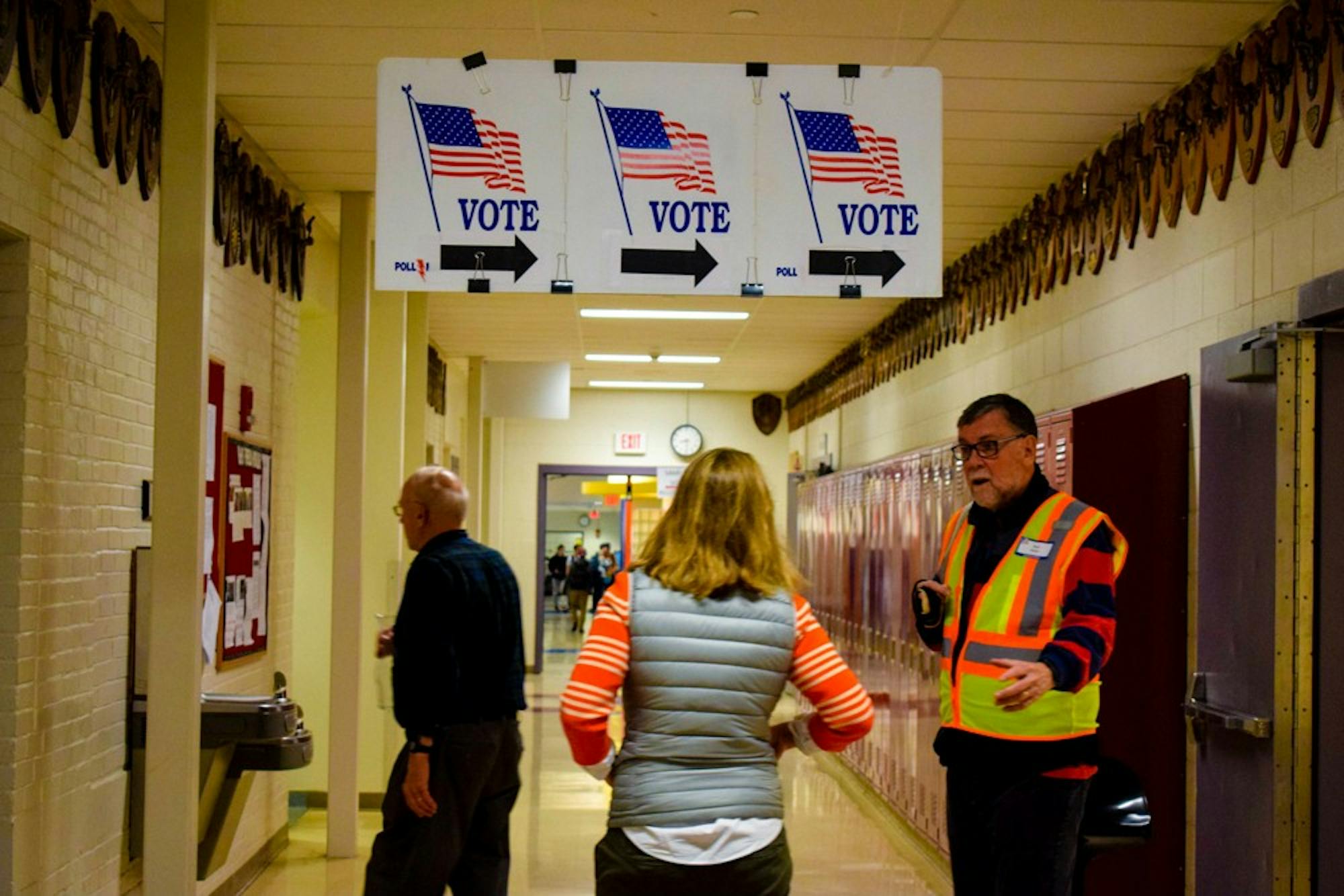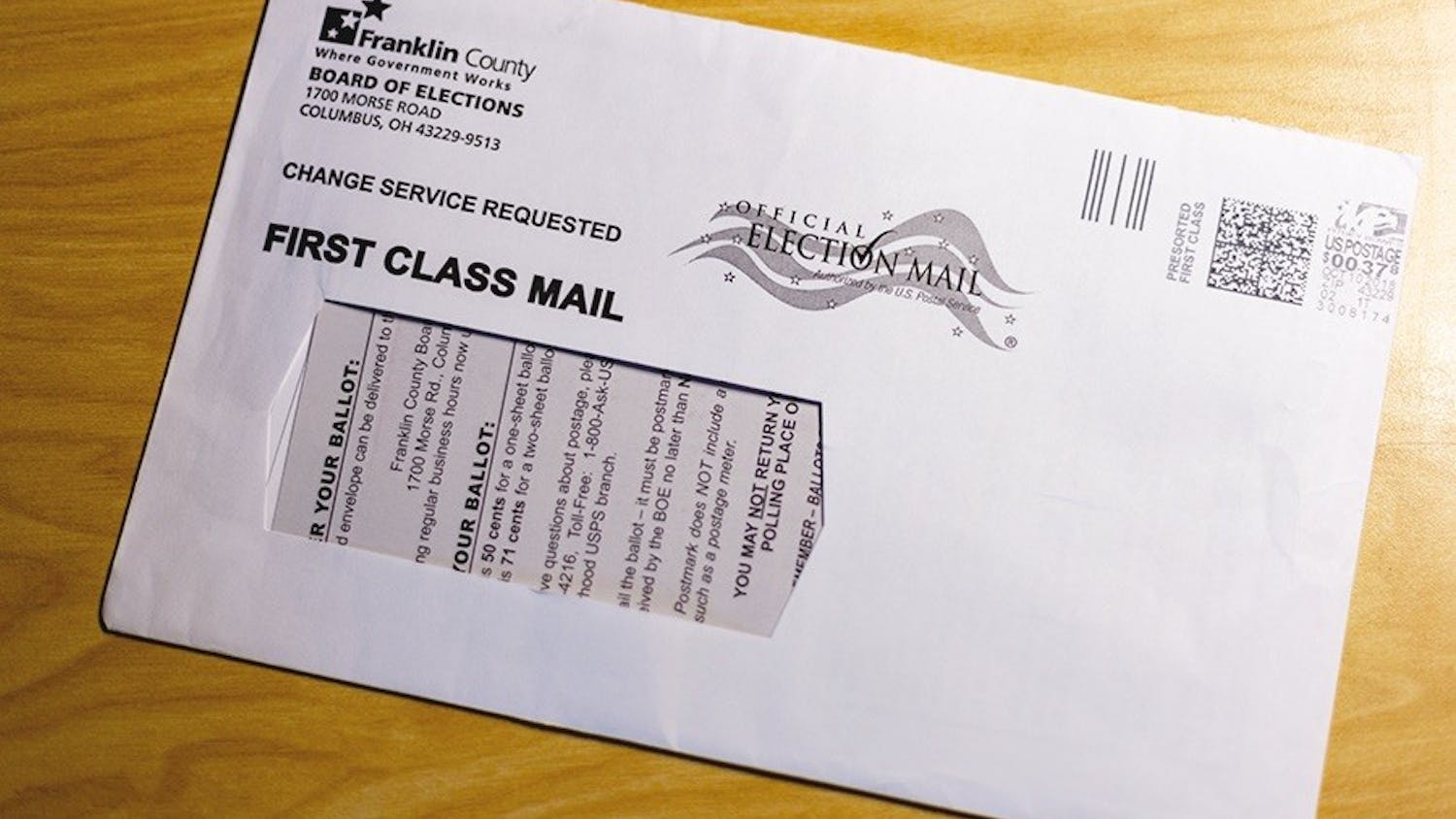House Bill 1264, which would effectively bar many college students and “temporary residents” from voting in New Hampshire through its requirements for voters to establish residency in the state, is set to go into effect this July. Hoping to undo these provisions, New Hampshire Democrats are supporting bills in the state legislature that would reverse the effects of HB 1264.
The matter has gained national attention given the law’s potential impact on voting outcomes in the state. On April 22, Sen. Jeanne Shaheen (D-NH) wrote a letter to every presidential candidate “to stand up for the tens of thousands of young Granite Staters who could lose the right to vote because of [HB 1264]” by signing a petition.
Multiple candidates, some of whom have recently visited campus, have voiced their support for the petition.
In a tweet responding to Shaheen’s petition, Sen. Kirsten Gillibrand ’88 (D-NY) said that she “strongly [supported] efforts to amend and repeal this bill.” Sen. Kamala Harris (D-CA), in another tweet reponding to the petition, said that signing the petition would send students the message that their “vote matters and must be protected.”
The controversial and highly politicized bill was signed into law by Gov. Chris Sununu (R) last July. HB 1264 redefines the terms of “residency” for voters to include only those persons who are “domiciled” in the state of New Hampshire and have demonstrated a clear intent to claim New Hampshire as their sole and primary place of physical presence. Supporters of the bill said that the intention of the bill is to make elections clearer and to add integrity to the election, according to New Hampshire Young Democrats president Lucas Meyer.
Currently, there are bills in both chambers of the New Hampshire legislature that would combat aspects of HB 1264. House Bill 106, if passed, would repeal HB 1264’s definition of “domicile” for voting purposes. Similarly, Senate Bill 67 would revise the definition of a “resident” to clarify that residents who do not intend to stay in New Hampshire indefinitely — such as college students, professors and hospital residents — are exempt from the requirements for residents, who must register any cars in New Hampshire and obtain a New Hampshire driver’s license.
The American Civil Liberties Union of New Hampshire filed a federal lawsuit in February challenging the provisions of HB 1264 as unconstitutionally restricting the right to vote for students, young people and new residents.
Rep. David Huot (D-Belknap) said he sees the voting restrictions as a political tool and game of semantics used to limit the rights of college students, which would in turn limit the impact of progressive ideologies.
“Most college students move into an apartment or dormitory in college and don’t actually consider their home as somewhere else,” Huot said. “‘Domicile’ refers to where you lay your head at night.”
Huot said that his support of HB 106 lies in his belief that “voting is not a privilege, but the quintessential right of citizenship.”
Dartmouth College Democrats president Gigi Gunderson ’21 said that being away at Dartmouth is a sufficient time frame to consider New Hampshire her primary home.
“I spend nine months out of 12 here,” Gunderson said. “Living in a place is defined by the Supreme Court by being there for six months and a day, and I know that we’re all here for over six months and day.”
Several New Hampshire Democrats agree with Gunderson. Meyer said that HB 1264 has not been the only attempt to disenfranchise young voters and student voters in the state. According to Meyer, there has been a trend in the New Hampshire State House to write election laws targeting college students over the past decade.
“Time after time, the common denominator has been that the group affected by these changes has been college students, either directly or indirectly,” Meyer said. “HB 1264 is an extension of that process — a seemingly innocuous bill which looks straightforward as statute, but has dire implications for college students’ voting rights.”
In order to provide evidence of one’s intent to stay in New Hampshire, hopeful voters face costly burdens to establish residence, particularly the requirements to obtain a New Hampshire’s driving license and register one’s car with the state within 60 days of becoming a resident, according to Rep. Mary Jane Mulligan (D-Grafton). If a voter does not meet these requirements, they risk paying burdensome fines and incurring voter fraud charges.
Mulligan, who co-sponsored HB 106, explained her support as wanting to ensure every person can exercise their constitutional right to vote without having to pay hundreds of dollars in fees and have to drive to the closest Department of Motor Vehicles office, which she said is not “terribly close” for Dartmouth students.
According to Meyer, HB 1264’s restrictions for young voters makes it hard to recruit young college students to supplement New Hampshire’s aging workforce, especially because New Hampshire has the highest percentage of high school graduates who leave the state to pursue higher education of any state in the country.
“If I’m considering staying here for the rest of my life, I want to have a voice in the politics of the state,” Gunderson said. “And even if I don’t intend to stay here for the rest of my life, it’s not like laws only affect people who have been living in New Hampshire their entire lives. The laws affect people whether they moved here yesterday or were born there, so we deserve the right to have our voices heard on those issues.”



